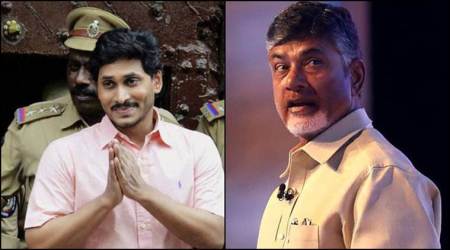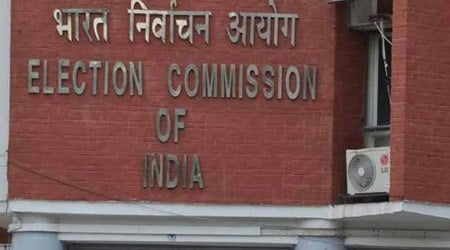 His party has seen a string of defections
His party has seen a string of defections
YSR Congress Party’s (YSRCP) loss in the August 23 by-election to the Nandyal Assembly constituency of Andhra Pradesh — the results for which were declared on Monday — has come as a big disappointment for party chief Y S Jagan Mohan Reddy, who was hoping a victory would lift his party’s sagging morale ahead of the 2019 Lok Sabha and Assembly elections.
Two days after the results, the run-up to which saw Reddy pull out all the stops and make personal attacks on Chief Minister N Chandrababu Naidu, YSRCP leaders got down to work, beginning the first round of constituency-level meetings to explain the nine promises made by their party chief, and his vision for the state if voted to power in 2019.
But they would need to do more, given that YSRCP candidate Silpa Chandra Mohan Reddy’s loss to the Telugu Desam Party’s (TDP) Bhuma Brahmananda Reddy by a margin of 27,466 votes, is being seen as a sign of “larger issues” ailing the party — discontent among the district-level leadership, disconnect between the cadre and the top leadership, and lack of interaction among YSRCP leaders.
The role of election strategist Prashant Kishor, who was hired by Reddy in July, has also come under scrutiny, though he is expected to stay till 2019. While YSRCP won 67 seats in the 2014 Assembly elections, its tally is now down to 47 — 20 MLAs defected to the ruling TDP. Four of them — V Sujaya Krishna Ranga Rao (Bobbili), Bhuma Akhila Priya Reddy (Allagadda), N Amarnath Reddy (Palamaner) and C Adinarayana Reddy (Jammalamadugu) — have also found positions in the Naidu Cabinet.
“In Telangana, many TDP MLAs defected to the ruling Telangana Rashtra Samiti (TRS) because they didn’t see any future in the TDP, which has lost all ground in the state. Something similar is happening to the YSRCP in Andhra Pradesh; its leaders are disillusioned with the party and are jumping ship,’’ said a senior political analyst. The party has seen a string of defections, with several YSRCP leaders in Chittoor, Kurnool, Krishna and other districts joining TDP in recent times.
The results are also worrying for the YSRCP because its voting calculations went awry. Their reliance on rural votes misfired, even as the TDP maintained its urban dominance. Jagan’s “one-man show”, experts say, has also affected the party’s performance. “While the TDP holds politburo and party working committee meetings, and the Congress has its leaders interacting often, there is no such system in the YSRCP. It is needed,” says YSRCP spokesperson Ambati Rambabu. “We are also failing to show that there is an internal democratic process. Just like Chandrababu Naidu’s word is final in the TDP, Jagan’s word is final in YSRCP, but in the TDP, there is a democratic process or at least it appears so. In YSRCP, that it not the case. We have to set it right,’’ he says.
Despite the set-back in the 2014 elections, Jagan held out the promise of being a strong Opposition leader. However, the defections over the last two years has left the party reeling. Some left for political gains while others said they couldn’t “connect” with Reddy. Besides, the YSRCP chief’s efforts to corner the Naidu government — by disrupting Assembly sessions over alleged corruption cases, bad governance and undelivered poll promises — have failed to make a dent.

